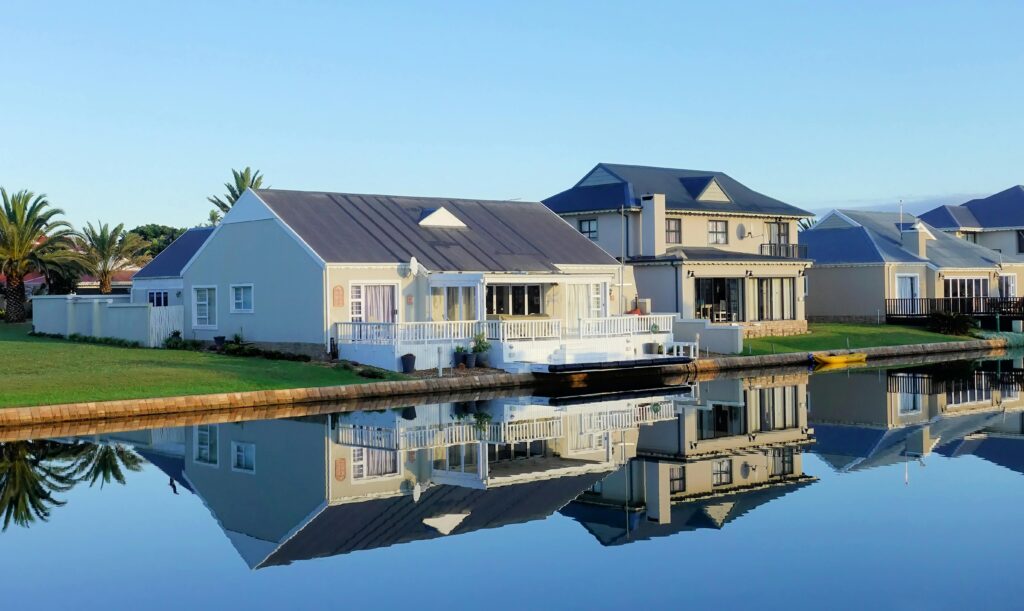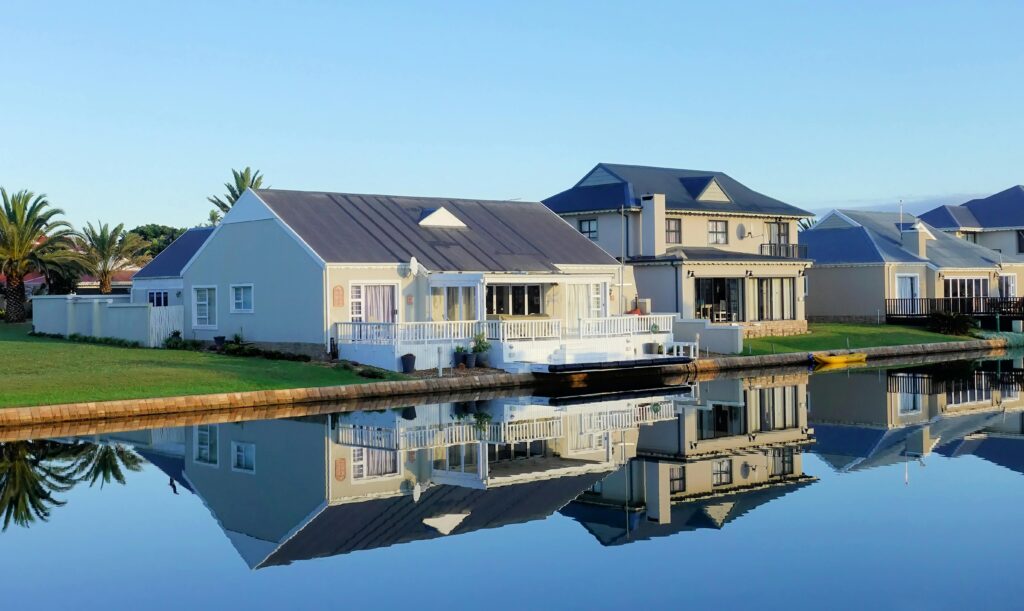<! - wp:paragraph - >
Starting an Airbnb business is one of the most accessible ways to build wealth through real estate in 2026. With travelers booking over 143 million nights in Q1 2025 alone according to Airbnb’s latest reports, demand for short-term rentals continues to grow, and smart entrepreneurs are capitalizing.
<! - /wp:paragraph - >
<! - wp:shortcode - >
Shaun Ghavami
Shaun Ghavami is the Founder of 10XBNB, an online coaching program that teaches individuals how to build a profitable Airbnb business – and an Airbnb Superhost® who has generated over $5 million in booking fees and has over 1,000 5-star guest reviews on his Airbnb management company Hosticonic.com. Shaun has an official Finance Degree from UBC and completed certification with Training The Street.
<! - /wp:shortcode - >
<! - wp:paragraph - >
But here’s the truth: most new hosts fail. They jump in without understanding regulations, mispricing their properties, or lacking systems to deliver consistent guest experiences. This guide shows you exactly how to avoid those mistakes and build a profitable Airbnb business from the ground up.
<! - /wp:paragraph - >
<! - wp:paragraph - >
Whether you want to rent out a spare room, invest in property, or scale a rental arbitrage portfolio, this step-by-step guide covers everything you need to know to succeed in 2026. For quick tips to implement immediately, check out our Airbnb tips guide.
<! - /wp:paragraph - >
<! - wp:heading - >
Why Start an Airbnb Business in 2026?
<! - /wp:heading - >
<! - wp:image {"id":3365,"sizeSlug":"large","linkDestination":"none"} - >

<! - /wp:image - >
<! - wp:paragraph - >
The short-term rental market presents compelling opportunities despite increasing competition:
<! - /wp:paragraph - >
<! - wp:heading {"level":3} - >
The Opportunity
<! - /wp:heading - >
<! - wp:list - >
- <! - wp:list-item - >
- Typical U.S. Airbnb hosts earned $14,000 in 2024
- Top performers earn $36,678+ annually per property
- Short-term rental hosts can earn 3.5x more than traditional landlords
- Q1 2025 saw 143.1 million nights booked on Airbnb
- Remote work continues driving demand for “workation” properties
<! - /wp:list-item - >
<! - wp:list-item - >
<! - /wp:list-item - >
<! - wp:list-item - >
<! - /wp:list-item - >
<! - wp:list-item - >
<! - /wp:list-item - >
<! - wp:list-item - >
<! - /wp:list-item - >
<! - /wp:list - >
<! - wp:heading {"level":3} - >
The Reality Check
<! - /wp:heading - >
<! - wp:list - >
- <! - wp:list-item - >
- Competition has increased significantly in most markets
- Regulations are tightening in major cities
- Guest expectations have never been higher
- Success requires systems, not just a spare room
<! - /wp:list-item - >
<! - wp:list-item - >
<! - /wp:list-item - >
<! - wp:list-item - >
<! - /wp:list-item - >
<! - wp:list-item - >
<! - /wp:list-item - >
<! - /wp:list - >
<! - wp:heading {"level":3} - >
Who This Business Model Works For
<! - /wp:heading - >
<! - wp:list - >
- <! - wp:list-item - >
- Real estate investors seeking higher yields
- Entrepreneurs who want location-independent income
- Property owners with underutilized space
- People willing to learn hospitality and operations
<! - /wp:list-item - >
<! - wp:list-item - >
<! - /wp:list-item - >
<! - wp:list-item - >
<! - /wp:list-item - >
<! - wp:list-item - >
<! - /wp:list-item - >
<! - /wp:list - >
<! - wp:heading - >
Understanding the Airbnb Business Model
<! - /wp:heading - >
<! - wp:paragraph - >
Before diving into steps, understand the fundamentals of how Airbnb hosting generates revenue.
<! - /wp:paragraph - >
<! - wp:heading {"level":3} - >
Revenue Model
<! - /wp:heading - >
<! - wp:list - >
- <! - wp:list-item - >
- Guests pay nightly rate + cleaning fee + Airbnb service fee
- Hosts receive nightly rate + cleaning fee minus Airbnb host fee (3%)
- Hosts typically earn 85-97% of the total booking amount
<! - /wp:list-item - >
<! - wp:list-item - >
<! - /wp:list-item - >
<! - wp:list-item - >
<! - /wp:list-item - >
<! - /wp:list - >
<! - wp:heading {"level":3} - >
Profit Formula
<! - /wp:heading - >
<! - wp:paragraph - >
Monthly Profit = (Avg Nightly Rate × Nights Booked) + (Cleaning Fee × Turnovers), Operating Expenses
<! - /wp:paragraph - >
<! - wp:heading {"level":3} - >
Typical Operating Expenses
<! - /wp:heading - >
<! - wp:list - >
- <! - wp:list-item - >
- Mortgage/rent
- Utilities (often higher with guests)
- Cleaning costs
- Supplies and restocking
- Maintenance and repairs
- Insurance
- Property management software
- Marketing and photography
<! - /wp:list-item - >
<! - wp:list-item - >
<! - /wp:list-item - >
<! - wp:list-item - >
<! - /wp:list-item - >
<! - wp:list-item - >
<! - /wp:list-item - >
<! - wp:list-item - >
<! - /wp:list-item - >
<! - wp:list-item - >
<! - /wp:list-item - >
<! - wp:list-item - >
<! - /wp:list-item - >
<! - wp:list-item - >
<! - /wp:list-item - >
<! - /wp:list - >
<! - wp:paragraph - >
The key to profitability is maximizing occupancy at optimal rates while controlling expenses through efficient systems.
<! - /wp:paragraph - >
<! - wp:image {"id":3368,"sizeSlug":"large","linkDestination":"none"} - >

<! - /wp:image - >
<! - wp:heading - >
Choosing Your Path: Three Business Models
<! - /wp:heading - >
<! - wp:paragraph - >
There are three primary ways to start an Airbnb business, each with different capital requirements and risk profiles.
<! - /wp:paragraph - >
<! - wp:heading {"level":3} - >
Model 1: Rental Arbitrage (Low Capital)
<! - /wp:heading - >
<! - wp:paragraph - >
Rental arbitrage means leasing properties long-term and subletting them as short-term rentals on Airbnb. Read our complete Airbnb Arbitrage 101 guide for the full breakdown.
<! - /wp:paragraph - >
<! - wp:paragraph - >
How it works:
<! - /wp:paragraph - >
<! - wp:list {"ordered":true} - >
- <! - wp:list-item - >
- Find landlords willing to allow short-term rentals
- Sign a lease using a proper rental arbitrage contract
- Furnish the property
- List and manage on Airbnb
- Keep the difference between nightly revenue and monthly rent
<! - /wp:list-item - >
<! - wp:list-item - >
<! - /wp:list-item - >
<! - wp:list-item - >
<! - /wp:list-item - >
<! - wp:list-item - >
<! - /wp:list-item - >
<! - wp:list-item - >
<! - /wp:list-item - >
<! - /wp:list - >
<! - wp:paragraph - >
Pros:
<! - /wp:paragraph - >
<! - wp:list - >
- <! - wp:list-item - >
- Low startup capital ($2,000-$10,000)
- No property ownership required
- Easy to test markets before buying
- Scalable, add properties without mortgages
<! - /wp:list-item - >
<! - wp:list-item - >
<! - /wp:list-item - >
<! - wp:list-item - >
<! - /wp:list-item - >
<! - wp:list-item - >
<! - /wp:list-item - >
<! - /wp:list - >
<! - wp:paragraph - >
Cons:
<! - /wp:paragraph - >
<! - wp:list - >
- <! - wp:list-item - >
- Landlord relationship risk
- No equity building
- Lease obligations continue even with low bookings
- Finding arbitrage-friendly landlords is challenging
<! - /wp:list-item - >
<! - wp:list-item - >
<! - /wp:list-item - >
<! - wp:list-item - >
<! - /wp:list-item - >
<! - wp:list-item - >
<! - /wp:list-item - >
<! - /wp:list - >
<! - wp:paragraph - >
Best for: Entrepreneurs who want to start quickly with limited capital and test the business model before investing in property.
<! - /wp:paragraph - >
<! - wp:heading {"level":3} - >
Model 2: Property Ownership (High Capital, Long-Term Wealth)
<! - /wp:heading - >
<! - wp:paragraph - >
The traditional approach: buy property specifically for short-term rental use.
<! - /wp:paragraph - >
<! - wp:paragraph - >
How it works:
<! - /wp:paragraph - >
<! - wp:list {"ordered":true} - >
- <! - wp:list-item - >
- Identify profitable markets with good STR fundamentals
- Purchase property (usually requires 20-25% down for investment properties)
- Furnish and list on Airbnb
- Build equity while generating rental income
<! - /wp:list-item - >
<! - wp:list-item - >
<! - /wp:list-item - >
<! - wp:list-item - >
<! - /wp:list-item - >
<! - wp:list-item - >
<! - /wp:list-item - >
<! - /wp:list - >
<! - wp:paragraph - >
Pros:
<! - /wp:paragraph - >
<! - wp:list - >
- <! - wp:list-item - >
- Build equity and long-term wealth
- Full control over property
- Potential appreciation gains
- More financing options available
- Tax benefits (depreciation, mortgage interest deduction)
<! - /wp:list-item - >
<! - wp:list-item - >
<! - /wp:list-item - >
<! - wp:list-item - >
<! - /wp:list-item - >
<! - wp:list-item - >
<! - /wp:list-item - >
<! - wp:list-item - >
<! - /wp:list-item - >
<! - /wp:list - >
<! - wp:paragraph - >
Cons:
<! - /wp:paragraph - >
<! - wp:list - >
- <! - wp:list-item - >
- High capital requirements ($50,000-$200,000+ to start)
- Market risk if property values decline
- Illiquid investment. Can’t exit quickly
- Responsible for all maintenance and repairs
<! - /wp:list-item - >
<! - wp:list-item - >
<! - /wp:list-item - >
<! - wp:list-item - >
<! - /wp:list-item - >
<! - wp:list-item - >
<! - /wp:list-item - >
<! - /wp:list - >
<! - wp:paragraph - >
Best for: Investors with capital who want to build long-term wealth through real estate while generating rental income.
<! - /wp:paragraph - >
<! - wp:heading {"level":3} - >
Model 3: Co-Hosting (Zero Property Required)
<! - /wp:heading - >
<! - wp:paragraph - >
Co-hosting means managing other people’s Airbnb properties for a percentage of revenue. Learn how to become an Airbnb co-host with our complete guide.
<! - /wp:paragraph - >
<! - wp:paragraph - >
How it works:
<! - /wp:paragraph - >
<! - wp:list {"ordered":true} - >
- <! - wp:list-item - >
- Partner with property owners who lack time or expertise
- Handle guest communication, cleaning coordination, pricing, etc.
- Earn competitive co-host salaries (10-30% of booking revenue)
- Scale by adding more properties under management
<! - /wp:list-item - >
<! - wp:list-item - >
<! - /wp:list-item - >
<! - wp:list-item - >
<! - /wp:list-item - >
<! - wp:list-item - >
<! - /wp:list-item - >
<! - /wp:list - >
<! - wp:paragraph - >
Airbnb’s Co-Host Network (launched October 2024):
<! - /wp:paragraph - >
<! - wp:list - >
- <! - wp:list-item - >
- Connects 10,000+ co-hosts across 10 countries
- Average co-host rating: 4.86 stars
- 73% of network co-hosts are Superhosts
- 84% manage Guest Favorite properties
<! - /wp:list-item - >
<! - wp:list-item - >
<! - /wp:list-item - >
<! - wp:list-item - >
<! - /wp:list-item - >
<! - wp:list-item - >
<! - /wp:list-item - >
<! - /wp:list - >
<! - wp:paragraph - >
Pros:
<! - /wp:paragraph - >
<! - wp:list - >
- <! - wp:list-item - >
- Zero capital required
- No lease or mortgage obligations
- Learn the business before investing your own money
- Scalable through reputation and referrals
<! - /wp:list-item - >
<! - wp:list-item - >
<! - /wp:list-item - >
<! - wp:list-item - >
<! - /wp:list-item - >
<! - wp:list-item - >
<! - /wp:list-item - >
<! - /wp:list - >
<! - wp:paragraph - >
Cons:
<! - /wp:paragraph - >
<! - wp:list - >
- <! - wp:list-item - >
- Lower profit margins (10-30% vs. 100%)
- Dependent on property owner relationships
- Less control over property decisions
- Must build reputation to attract clients
<! - /wp:list-item - >
<! - wp:list-item - >
<! - /wp:list-item - >
<! - wp:list-item - >
<! - /wp:list-item - >
<! - wp:list-item - >
<! - /wp:list-item - >
<! - /wp:list - >
<! - wp:paragraph - >
Best for: People who want to learn Airbnb hosting, build skills, and generate income before committing capital.
<! - /wp:paragraph - >
<! - wp:image {"id":3948,"sizeSlug":"full","linkDestination":"none"} - >

<! - /wp:image - >
<! - wp:heading - >
How Much Does It Cost to Start an Airbnb Business?
<! - /wp:heading - >
<! - wp:paragraph - >
Startup costs vary dramatically based on your chosen model:
<! - /wp:paragraph - >
<! - wp:heading {"level":3} - >
Rental Arbitrage Costs
<! - /wp:heading - >
<! - wp:table - >
| Expense Category | Low End | High End |
|---|---|---|
| Security deposit | $1,000 | $4,000 |
| First/last month rent | $2,000 | $6,000 |
| Furniture package | $2,000 | $8,000 |
| Linens and towels | $300 | $800 |
| Kitchen essentials | $300 | $1,000 |
| Decor and staging | $300 | $2,000 |
| Professional photos | $150 | $500 |
| Initial supplies | $200 | $500 |
| TOTAL | $6,250 | $22,800 |
<! - /wp:table - >
<! - wp:heading {"level":3} - >
Property Purchase Costs
<! - /wp:heading - >
<! - wp:table - >
| Expense Category | Low End | High End |
|---|---|---|
| Down payment (20-25%) | $40,000 | $150,000+ |
| Closing costs (2-5%) | $4,000 | $15,000 |
| Furniture package | $5,000 | $25,000 |
| Renovations/updates | $0 | $30,000 |
| Professional photos | $200 | $1,000 |
| Initial supplies | $500 | $1,500 |
| TOTAL | $49,700 | $222,500+ |
<! - /wp:table - >
<! - wp:heading {"level":3} - >
Co-Hosting Costs
<! - /wp:heading - >
<! - wp:table - >
| Expense Category | Low End | High End |
|---|---|---|
| Property management software | $0 | $100/mo |
| Business cards/marketing | $50 | $300 |
| Insurance (liability) | $300 | $1,000/yr |
| TOTAL | $350 | $1,400 |
<! - /wp:table - >
<! - wp:heading - >
Step 1: Research Your Market
<! - /wp:heading - >
<! - wp:paragraph - >
Before committing any capital, analyze your target market thoroughly. Use our Airbnb arbitrage calculator to run the numbers, and explore the best states for Airbnb to find profitable markets. Read more about how to profit from Airbnb without owning real estate in our complete guide.
<! - /wp:paragraph - >
<! - wp:image {"id":3367,"sizeSlug":"large","linkDestination":"none"} - >

<! - /wp:image - >
<! - wp:heading - >
Key Metrics to Research
<! - /wp:heading - >
<! - wp:paragraph - >
Occupancy Rate:
<! - /wp:paragraph - >
<! - wp:paragraph - >
The percentage of available nights that are booked. Healthy markets show 55-70% occupancy.
<! - /wp:paragraph - >
<! - wp:list - >
- <! - wp:list-item - >
- Below 50%: Oversaturated or weak demand
- 50-60%: Competitive but viable
- 60-70%: Strong market
- Above 70%: High demand (but verify seasonality)
<! - /wp:list-item - >
<! - wp:list-item - >
<! - /wp:list-item - >
<! - wp:list-item - >
<! - /wp:list-item - >
<! - wp:list-item - >
<! - /wp:list-item - >
<! - /wp:list - >
<! - wp:paragraph - >
Average Daily Rate (ADR):
<! - /wp:paragraph - >
<! - wp:paragraph - >
The average nightly price in your market for comparable properties.
<! - /wp:paragraph - >
<! - wp:paragraph - >
Revenue Per Available Room (RevPAR):
<! - /wp:paragraph - >
<! - wp:paragraph - >
ADR × Occupancy Rate = RevPAR. This shows true earning potential.
<! - /wp:paragraph - >
<! - wp:paragraph - >
Seasonality:
<! - /wp:paragraph - >
<! - wp:paragraph - >
Understand high vs. Low season. Markets with extreme seasonality require careful cash flow planning.
<! - /wp:paragraph - >
<! - wp:heading {"level":3} - >
Research Tools
<! - /wp:heading - >
<! - wp:list - >
- <! - wp:list-item - >
- AirDNA: Complete STR market data
- Mashvisor: Investment property analysis
- AllTheRooms: Market analytics
- Airbnb search: Manual competitive analysis
- Check our Airbnb data and analytics guides
<! - /wp:list-item - >
<! - wp:list-item - >
<! - /wp:list-item - >
<! - wp:list-item - >
<! - /wp:list-item - >
<! - wp:list-item - >
<! - /wp:list-item - >
<! - wp:list-item - >
<! - /wp:list-item - >
<! - /wp:list - >
<! - wp:heading {"level":3} - >
What to Look For
<! - /wp:heading - >
<! - wp:list - >
- <! - wp:list-item - >
- Growing traveler demand (not declining)
- Reasonable competition (not oversaturated)
- Regulatory environment that permits STRs
- Economic stability in the area
- Multiple demand drivers (tourism, business, events)
<! - /wp:list-item - >
<! - wp:list-item - >
<! - /wp:list-item - >
<! - wp:list-item - >
<! - /wp:list-item - >
<! - wp:list-item - >
<! - /wp:list-item - >
<! - wp:list-item - >
<! - /wp:list-item - >
<! - /wp:list - >
<! - wp:heading - >
Step 2: Understand Local Regulations
<! - /wp:heading - >
<! - wp:paragraph - >
Short-term rental regulations vary dramatically by location. What’s legal in one city may result in $10,000+ fines in another.
<! - /wp:paragraph - >
<! - wp:heading {"level":3} - >
Research These Requirements
<! - /wp:heading - >
<! - wp:paragraph - >
Zoning Laws:
<! - /wp:paragraph - >
<! - wp:list - >
- <! - wp:list-item - >
- Is your property in a zone that permits STRs?
- Are there density limits (max STRs per building/area)?
<! - /wp:list-item - >
<! - wp:list-item - >
<! - /wp:list-item - >
<! - /wp:list - >
<! - wp:paragraph - >
Permit/License Requirements:
<! - /wp:paragraph - >
<! - wp:list - >
- <! - wp:list-item - >
- Is a short-term rental permit required?
- What’s the application process and cost?
- Are permits limited (lottery or cap)?
<! - /wp:list-item - >
<! - wp:list-item - >
<! - /wp:list-item - >
<! - wp:list-item - >
<! - /wp:list-item - >
<! - /wp:list - >
<! - wp:paragraph - >
Operating Restrictions:
<! - /wp:paragraph - >
<! - wp:list - >
- <! - wp:list-item - >
- Maximum rental days per year (90-day limits are common)
- Owner-occupancy requirements
- Minimum stay requirements
<! - /wp:list-item - >
<! - wp:list-item - >
<! - /wp:list-item - >
<! - wp:list-item - >
<! - /wp:list-item - >
<! - /wp:list - >
<! - wp:paragraph - >
Tax Requirements:
<! - /wp:paragraph - >
<! - wp:list - >
- <! - wp:list-item - >
- Local occupancy/hotel tax rates
- Registration requirements
- Collection and remittance processes
<! - /wp:list-item - >
<! - wp:list-item - >
<! - /wp:list-item - >
<! - wp:list-item - >
<! - /wp:list-item - >
<! - /wp:list - >
<! - wp:paragraph - >
HOA/Building Rules:
<! - /wp:paragraph - >
<! - wp:list - >
- <! - wp:list-item - >
- Does your HOA or condo association permit STRs?
- Are there specific HOA restrictions to follow?
<! - /wp:list-item - >
<! - wp:list-item - >
<! - /wp:list-item - >
<! - /wp:list - >
<! - wp:paragraph - >
Insurance Requirements:
<! - /wp:paragraph - >
<! - wp:list - >
- <! - wp:list-item - >
- Is commercial liability insurance required?
- Does your landlord require specific coverage?
- Learn about Airbnb insurance requirements
<! - /wp:list-item - >
<! - wp:list-item - >
<! - /wp:list-item - >
<! - wp:list-item - >
<! - /wp:list-item - >
<! - /wp:list - >
<! - wp:heading {"level":3} - >
How to Research
<! - /wp:heading - >
<! - wp:list {"ordered":true} - >
- <! - wp:list-item - >
- Check your city’s official website for STR regulations
- Search “[Your City] short-term rental permit”
- Call your city’s planning/zoning department
- Consult a local real estate attorney for complex situations
- Join local host Facebook groups for practical insights
<! - /wp:list-item - >
<! - wp:list-item - >
<! - /wp:list-item - >
<! - wp:list-item - >
<! - /wp:list-item - >
<! - wp:list-item - >
<! - /wp:list-item - >
<! - wp:list-item - >
<! - /wp:list-item - >
<! - /wp:list - >
<! - wp:heading - >
Step 3: Create a Business Plan
<! - /wp:heading - >
<! - wp:paragraph - >
A business plan forces you to think through profitability before investing.
<! - /wp:paragraph - >
<! - wp:heading {"level":3} - >
Essential Components
<! - /wp:heading - >
<! - wp:paragraph - >
Executive Summary:
<! - /wp:paragraph - >
<! - wp:list - >
- <! - wp:list-item - >
- Business concept (arbitrage, ownership, co-hosting)
- Target market and property type
- Revenue and profit projections
<! - /wp:list-item - >
<! - wp:list-item - >
<! - /wp:list-item - >
<! - wp:list-item - >
<! - /wp:list-item - >
<! - /wp:list - >
<! - wp:paragraph - >
Market Analysis:
<! - /wp:paragraph - >
<! - wp:list - >
- <! - wp:list-item - >
- Target market research (from Step 1)
- Competitor analysis
- Demand drivers and seasonality
<! - /wp:list-item - >
<! - wp:list-item - >
<! - /wp:list-item - >
<! - wp:list-item - >
<! - /wp:list-item - >
<! - /wp:list - >
<! - wp:paragraph - >
Financial Projections:
<! - /wp:paragraph - >
<! - wp:paragraph - >
Create a 12-month pro forma:
<! - /wp:paragraph - >
<! - wp:paragraph - >
Monthly Revenue Projection:
<! - /wp:paragraph - >
<! - wp:list - >
- <! - wp:list-item - >
- Conservative: 45% occupancy
- Moderate: 55% occupancy
- Optimistic: 65% occupancy
<! - /wp:list-item - >
<! - wp:list-item - >
<! - /wp:list-item - >
<! - wp:list-item - >
<! - /wp:list-item - >
<! - /wp:list - >
<! - wp:paragraph - >
Monthly Expenses:
<! - /wp:paragraph - >
<! - wp:list - >
- <! - wp:list-item - >
- Fixed: Rent/mortgage, insurance, subscriptions
- Variable: Cleaning, supplies, utilities, repairs
<! - /wp:list-item - >
<! - wp:list-item - >
<! - /wp:list-item - >
<! - /wp:list - >
<! - wp:paragraph - >
Break-Even Analysis:
<! - /wp:paragraph - >
<! - wp:paragraph - >
How many nights per month must you book to cover all expenses?
<! - /wp:paragraph - >
<! - wp:paragraph - >
Risk Assessment:
<! - /wp:paragraph - >
<! - wp:list - >
- <! - wp:list-item - >
- What if occupancy drops 30%?
- What if a major expense arises?
- What’s your exit strategy?
<! - /wp:list-item - >
<! - wp:list-item - >
<! - /wp:list-item - >
<! - wp:list-item - >
<! - /wp:list-item - >
<! - /wp:list - >
<! - wp:heading - >
Step 4: Secure Your Property
<! - /wp:heading - >
<! - wp:paragraph - >
With research complete, it’s time to secure your property.
<! - /wp:paragraph - >
<! - wp:heading {"level":3} - >
For Rental Arbitrage
<! - /wp:heading - >
<! - wp:paragraph - >
Finding Arbitrage-Friendly Landlords:
<! - /wp:paragraph - >
<! - wp:paragraph - >
Check out the best cities for Airbnb arbitrage, then:
<! - /wp:paragraph - >
<! - wp:list {"ordered":true} - >
- <! - wp:list-item - >
- Search “furnished rental” and “corporate housing” listings
- Contact property management companies directly
- Look for landlords advertising “flexible terms”
- Network with other arbitrage hosts for referrals
- Be upfront about your intentions, deception backfires
<! - /wp:list-item - >
<! - wp:list-item - >
<! - /wp:list-item - >
<! - wp:list-item - >
<! - /wp:list-item - >
<! - wp:list-item - >
<! - /wp:list-item - >
<! - wp:list-item - >
<! - /wp:list-item - >
<! - /wp:list - >
<! - wp:paragraph - >
Use our proven Airbnb arbitrage script when approaching landlords.
<! - /wp:paragraph - >
<! - wp:paragraph - >
The Pitch to Landlords:
<! - /wp:paragraph - >
<! - wp:list - >
- <! - wp:list-item - >
- Emphasize property care (more attention than long-term tenants)
- Offer higher rent (10-20% premium)
- Provide references from other properties
- Offer to add landlord as additional insured
- Propose a trial period with inspection rights
<! - /wp:list-item - >
<! - wp:list-item - >
<! - /wp:list-item - >
<! - wp:list-item - >
<! - /wp:list-item - >
<! - wp:list-item - >
<! - /wp:list-item - >
<! - wp:list-item - >
<! - /wp:list-item - >
<! - /wp:list - >
<! - wp:paragraph - >
Lease Considerations:
<! - /wp:paragraph - >
<! - wp:list - >
- <! - wp:list-item - >
- Get explicit written permission for short-term rentals
- Clarify guest policies and any restrictions
- Understand your maintenance responsibilities
- Negotiate renewal terms upfront
<! - /wp:list-item - >
<! - wp:list-item - >
<! - /wp:list-item - >
<! - wp:list-item - >
<! - /wp:list-item - >
<! - wp:list-item - >
<! - /wp:list-item - >
<! - /wp:list - >
<! - wp:heading {"level":3} - >
For Property Purchase
<! - /wp:heading - >
<! - wp:paragraph - >
Financing Options:
<! - /wp:paragraph - >
<! - wp:list - >
- <! - wp:list-item - >
- Conventional investment property loans (20-25% down)
- DSCR loans (debt service coverage ratio, based on rental income, not personal income)
- Portfolio loans (local banks, more flexibility)
- Hard money loans (short-term, higher rates)
- House hacking (owner-occupy while renting rooms)
<! - /wp:list-item - >
<! - wp:list-item - >
<! - /wp:list-item - >
<! - wp:list-item - >
<! - /wp:list-item - >
<! - wp:list-item - >
<! - /wp:list-item - >
<! - wp:list-item - >
<! - /wp:list-item - >
<! - /wp:list - >
<! - wp:paragraph - >
Property Evaluation:
<! - /wp:paragraph - >
<! - wp:list - >
- <! - wp:list-item - >
- Run numbers on AirDNA before making offers
- Verify STR regulations for specific addresses
- Assess renovation needs and costs
- Consider property management accessibility
<! - /wp:list-item - >
<! - wp:list-item - >
<! - /wp:list-item - >
<! - wp:list-item - >
<! - /wp:list-item - >
<! - wp:list-item - >
<! - /wp:list-item - >
<! - /wp:list - >
<! - wp:heading - >
Step 5: Set Up Your Business Infrastructure
<! - /wp:heading - >
<! - wp:paragraph - >
Treat this as a real business from day one.
<! - /wp:paragraph - >
<! - wp:heading {"level":3} - >
Legal Structure
<! - /wp:heading - >
<! - wp:paragraph - >
Form an LLC for liability protection:
<! - /wp:paragraph - >
<! - wp:list - >
- <! - wp:list-item - >
- Separates personal assets from business
- Provides tax flexibility
- Creates professional credibility
- Costs $50-$500 depending on state
<! - /wp:list-item - >
<! - wp:list-item - >
<! - /wp:list-item - >
<! - wp:list-item - >
<! - /wp:list-item - >
<! - wp:list-item - >
<! - /wp:list-item - >
<! - /wp:list - >
<! - wp:heading {"level":3} - >
Business Banking
<! - /wp:heading - >
<! - wp:list - >
- <! - wp:list-item - >
- Open a dedicated business checking account
- Keep all income and expenses separate
- Consider a business credit card for expense tracking
<! - /wp:list-item - >
<! - wp:list-item - >
<! - /wp:list-item - >
<! - wp:list-item - >
<! - /wp:list-item - >
<! - /wp:list - >
<! - wp:heading {"level":3} - >
Insurance
<! - /wp:heading - >
<! - wp:paragraph - >
Essential coverage:
<! - /wp:paragraph - >
<! - wp:list - >
- <! - wp:list-item - >
- Short-term rental insurance: Proper STR policy (not standard homeowners)
- Liability coverage: $1M minimum recommended
- Property protection: Covers damage to your furnishings
<! - /wp:list-item - >
<! - wp:list-item - >
<! - /wp:list-item - >
<! - wp:list-item - >
<! - /wp:list-item - >
<! - /wp:list - >
<! - wp:paragraph - >
Providers: Proper Insurance, CBIZ, Safely, or add endorsements through traditional insurers.
<! - /wp:paragraph - >
<! - wp:heading {"level":3} - >
Tax Setup
<! - /wp:heading - >
<! - wp:list - >
- <! - wp:list-item - >
- Get an EIN from the IRS (free)
- Register for local business license
- Set up occupancy tax collection (Airbnb handles this in most areas)
- Track all expenses for deductions
- Consider quarterly estimated tax payments
<! - /wp:list-item - >
<! - wp:list-item - >
<! - /wp:list-item - >
<! - wp:list-item - >
<! - /wp:list-item - >
<! - wp:list-item - >
<! - /wp:list-item - >
<! - wp:list-item - >
<! - /wp:list-item - >
<! - /wp:list - >
<! - wp:heading - >
Step 6: Furnish and Prepare Your Property
<! - /wp:heading - >
<! - wp:paragraph - >
Furnishing determines guest experience and photo quality, both critical to bookings. Use our complete furnishing Airbnb checklist to ensure nothing is missed.
<! - /wp:paragraph - >
<! - wp:heading {"level":3} - >
Furnishing Budget by Property Size
<! - /wp:heading - >
<! - wp:list - >
- <! - wp:list-item - >
- Studio/1BR: $2,000-$5,000
- 2BR: $4,000-$10,000
- 3BR: $7,000-$15,000
- 4BR+: $12,000-$25,000
<! - /wp:list-item - >
<! - wp:list-item - >
<! - /wp:list-item - >
<! - wp:list-item - >
<! - /wp:list-item - >
<! - wp:list-item - >
<! - /wp:list-item - >
<! - /wp:list - >
<! - wp:heading {"level":3} - >
Essential Furniture
<! - /wp:heading - >
<! - wp:list - >
- <! - wp:list-item - >
- Quality mattresses (don’t cheap out, guest sleep quality affects reviews)
- Comfortable sofa/seating
- Dining table with adequate seating
- Nightstands with lamps
- Dresser or closet storage
- Desk/workspace area
<! - /wp:list-item - >
<! - wp:list-item - >
<! - /wp:list-item - >
<! - wp:list-item - >
<! - /wp:list-item - >
<! - wp:list-item - >
<! - /wp:list-item - >
<! - wp:list-item - >
<! - /wp:list-item - >
<! - wp:list-item - >
<! - /wp:list-item - >
<! - /wp:list - >
<! - wp:heading {"level":3} - >
Essential Amenities (2026 Standards)
<! - /wp:heading - >
<! - wp:list - >
- <! - wp:list-item - >
- Fast WiFi (100+ Mbps)
- Smart TV with streaming apps
- Coffee maker (Keurig or quality drip)
- Full kitchen essentials
- Quality linens (hotel-grade)
- Towel sets (2 per guest)
- Iron and ironing board
- Hair dryer
- Basic toiletries
<! - /wp:list-item - >
<! - wp:list-item - >
<! - /wp:list-item - >
<! - wp:list-item - >
<! - /wp:list-item - >
<! - wp:list-item - >
<! - /wp:list-item - >
<! - wp:list-item - >
<! - /wp:list-item - >
<! - wp:list-item - >
<! - /wp:list-item - >
<! - wp:list-item - >
<! - /wp:list-item - >
<! - wp:list-item - >
<! - /wp:list-item - >
<! - wp:list-item - >
<! - /wp:list-item - >
<! - /wp:list - >
<! - wp:heading {"level":3} - >
High-Value Additions
<! - /wp:heading - >
<! - wp:list - >
- <! - wp:list-item - >
- Dedicated workspace
- EV charger (increasingly important)
- Hot tub or pool access
- Outdoor seating area
- Game room/entertainment
- Pet-friendly accommodations
<! - /wp:list-item - >
<! - wp:list-item - >
<! - /wp:list-item - >
<! - wp:list-item - >
<! - /wp:list-item - >
<! - wp:list-item - >
<! - /wp:list-item - >
<! - wp:list-item - >
<! - /wp:list-item - >
<! - wp:list-item - >
<! - /wp:list-item - >
<! - /wp:list - >
<! - wp:heading {"level":3} - >
Sourcing Tips
<! - /wp:heading - >
<! - wp:list - >
- <! - wp:list-item - >
- IKEA for functional basics
- Wayfair for good value furniture
- Amazon for linens, kitchen items, consumables
- Facebook Marketplace for secondhand finds
- HomeGoods/TJ Maxx for decor
<! - /wp:list-item - >
<! - wp:list-item - >
<! - /wp:list-item - >
<! - wp:list-item - >
<! - /wp:list-item - >
<! - wp:list-item - >
<! - /wp:list-item - >
<! - wp:list-item - >
<! - /wp:list-item - >
<! - /wp:list - >
<! - wp:heading - >
Step 7: Invest in Professional Photography
<! - /wp:heading - >
<! - wp:paragraph - >
Professional photos are the single highest-ROI investment for your listing.
<! - /wp:paragraph - >
<! - wp:heading {"level":3} - >
Why It Matters
<! - /wp:heading - >
<! - wp:list - >
- <! - wp:list-item - >
- Listings with pro photos get 40% more bookings
- Better photos justify higher prices
- First photo determines if guests click or scroll past
<! - /wp:list-item - >
<! - wp:list-item - >
<! - /wp:list-item - >
<! - wp:list-item - >
<! - /wp:list-item - >
<! - /wp:list - >
<! - wp:heading {"level":3} - >
What to Capture
<! - /wp:heading - >
<! - wp:list - >
- <! - wp:list-item - >
- Hero shot (best angle of main living space)
- Every room from multiple angles
- Kitchen in detail
- Bathroom (clean and staged)
- Outdoor spaces
- Unique features (fireplace, view, hot tub)
- Neighborhood/location shots
<! - /wp:list-item - >
<! - wp:list-item - >
<! - /wp:list-item - >
<! - wp:list-item - >
<! - /wp:list-item - >
<! - wp:list-item - >
<! - /wp:list-item - >
<! - wp:list-item - >
<! - /wp:list-item - >
<! - wp:list-item - >
<! - /wp:list-item - >
<! - wp:list-item - >
<! - /wp:list-item - >
<! - /wp:list - >
<! - wp:heading {"level":3} - >
Photography Tips
<! - /wp:heading - >
<! - wp:list - >
- <! - wp:list-item - >
- Shoot during golden hour for warm light
- Stage every photo (made beds, set table, lit candles)
- Remove personal items and clutter
- Use wide-angle lens but avoid distortion
- Update photos seasonally
<! - /wp:list-item - >
<! - wp:list-item - >
<! - /wp:list-item - >
<! - wp:list-item - >
<! - /wp:list-item - >
<! - wp:list-item - >
<! - /wp:list-item - >
<! - wp:list-item - >
<! - /wp:list-item - >
<! - /wp:list - >
<! - wp:paragraph - >
Costs: $150-$500 for professional shoot
<! - /wp:paragraph - >
<! - wp:heading - >
Step 8: Create Your Listing
<! - /wp:heading - >
<! - wp:paragraph - >
Your listing converts browsers into bookers. Learn how to get more bookings on Airbnb and master Airbnb SEO to optimize every element.
<! - /wp:paragraph - >
<! - wp:heading {"level":3} - >
Title Formula
<! - /wp:heading - >
<! - wp:paragraph - >
[Property Type] + [Unique Feature] + [Location Hint]
<! - /wp:paragraph - >
<! - wp:paragraph - >
Examples:
<! - /wp:paragraph - >
<! - wp:list - >
- <! - wp:list-item - >
- “Modern Downtown Loft | Rooftop Access | Walk to Everything”
- “Cozy Cabin with Hot Tub | Mountain Views | Near Skiing”
- “Family-Friendly Home | Pool & Game Room | Disney 10 Min”
<! - /wp:list-item - >
<! - wp:list-item - >
<! - /wp:list-item - >
<! - wp:list-item - >
<! - /wp:list-item - >
<! - /wp:list - >
<! - wp:heading {"level":3} - >
Description Structure
<! - /wp:heading - >
<! - wp:paragraph - >
Use our Airbnb description writing guide for detailed templates:
<! - /wp:paragraph - >
<! - wp:list {"ordered":true} - >
- <! - wp:list-item - >
- Opening hook (2-3 sentences): Lead with your best feature and the experience guests will have.
- Space overview (1 paragraph): Describe the property layout and what makes it special.
- Amenities (bullet list): Complete list of everything included.
- Location (1 paragraph): What’s nearby, how to get around, why guests choose this area.
- House rules summary (brief): High-level expectations.
- Call to action: Create urgency to book.
<! - /wp:list-item - >
<! - wp:list-item - >
<! - /wp:list-item - >
<! - wp:list-item - >
<! - /wp:list-item - >
<! - wp:list-item - >
<! - /wp:list-item - >
<! - wp:list-item - >
<! - /wp:list-item - >
<! - wp:list-item - >
<! - /wp:list-item - >
<! - /wp:list - >
<! - wp:heading {"level":3} - >
Pricing Strategy
<! - /wp:heading - >
<! - wp:paragraph - >
For new listings:
<! - /wp:paragraph - >
<! - wp:list {"ordered":true} - >
- <! - wp:list-item - >
- Price 15-20% below comparable listings initially
- Turn on Instant Book
- Accept all reasonable guests to build reviews
- Raise prices after reaching 5+ reviews
<! - /wp:list-item - >
<! - wp:list-item - >
<! - /wp:list-item - >
<! - wp:list-item - >
<! - /wp:list-item - >
<! - wp:list-item - >
<! - /wp:list-item - >
<! - /wp:list - >
<! - wp:paragraph - >
Ongoing pricing:
<! - /wp:paragraph - >
<! - wp:list - >
- <! - wp:list-item - >
- Use dynamic pricing tools (PriceLabs, Beyond Pricing, Wheelhouse)
- Adjust for seasonality, events, and day of week
- Set minimum stays strategically
<! - /wp:list-item - >
<! - wp:list-item - >
<! - /wp:list-item - >
<! - wp:list-item - >
<! - /wp:list-item - >
<! - /wp:list - >
<! - wp:heading - >
Step 9: Deliver a 5-Star Guest Experience
<! - /wp:heading - >
<! - wp:paragraph - >
Your first 10 reviews set your trajectory. Obsess over guest experience. Learn more about screening Airbnb guests to avoid problems.
<! - /wp:paragraph - >
<! - wp:heading {"level":3} - >
Before Arrival
<! - /wp:heading - >
<! - wp:list - >
- <! - wp:list-item - >
- Send detailed check-in instructions 24-48 hours before
- Confirm arrival time
- Offer early check-in if possible
- Provide parking and access details
<! - /wp:list-item - >
<! - wp:list-item - >
<! - /wp:list-item - >
<! - wp:list-item - >
<! - /wp:list-item - >
<! - wp:list-item - >
<! - /wp:list-item - >
<! - /wp:list - >
<! - wp:heading {"level":3} - >
Check-In
<! - /wp:heading - >
<! - wp:list - >
- <! - wp:list-item - >
- Ensure property is spotless
- Set comfortable temperature
- Leave welcome note or small gift in your guest welcome book
- Provide clear WiFi instructions
- Include emergency contacts
<! - /wp:list-item - >
<! - wp:list-item - >
<! - /wp:list-item - >
<! - wp:list-item - >
<! - /wp:list-item - >
<! - wp:list-item - >
<! - /wp:list-item - >
<! - wp:list-item - >
<! - /wp:list-item - >
<! - /wp:list - >
<! - wp:heading {"level":3} - >
During Stay
<! - /wp:heading - >
<! - wp:list - >
- <! - wp:list-item - >
- Send a Day 2 check-in message
- Respond to messages within 1 hour
- Resolve issues immediately
- Offer local recommendations
<! - /wp:list-item - >
<! - wp:list-item - >
<! - /wp:list-item - >
<! - wp:list-item - >
<! - /wp:list-item - >
<! - wp:list-item - >
<! - /wp:list-item - >
<! - /wp:list - >
<! - wp:heading {"level":3} - >
Check-Out
<! - /wp:heading - >
<! - wp:list - >
- <! - wp:list-item - >
- Send reminder with checkout time
- Thank them for staying
- Request a review within 24 hours
<! - /wp:list-item - >
<! - wp:list-item - >
<! - /wp:list-item - >
<! - wp:list-item - >
<! - /wp:list-item - >
<! - /wp:list - >
<! - wp:heading - >
Step 10: Build Your Cleaning Systems
<! - /wp:heading - >
<! - wp:paragraph - >
Cleanliness is the #1 factor in reviews. Build bulletproof systems using our complete Airbnb cleaning checklist.
<! - /wp:paragraph - >
<! - wp:heading {"level":3} - >
Hiring Cleaners
<! - /wp:heading - >
<! - wp:list - >
- <! - wp:list-item - >
- Ask other hosts for referrals
- Look for STR-experienced cleaners
- Start with a trial period
- Pay fairly ($100-200 per turnover)
- Provide detailed cleaning checklist
<! - /wp:list-item - >
<! - wp:list-item - >
<! - /wp:list-item - >
<! - wp:list-item - >
<! - /wp:list-item - >
<! - wp:list-item - >
<! - /wp:list-item - >
<! - wp:list-item - >
<! - /wp:list-item - >
<! - /wp:list - >
<! - wp:heading {"level":3} - >
Quality Control
<! - /wp:heading - >
<! - wp:list - >
- <! - wp:list-item - >
- Conduct surprise inspections
- Review every cleanliness mention in reviews
- Create a “Standard Property Appearance” guide
<! - /wp:list-item - >
<! - wp:list-item - >
<! - /wp:list-item - >
<! - wp:list-item - >
<! - /wp:list-item - >
<! - /wp:list - >
<! - wp:heading {"level":3} - >
Coordination
<! - /wp:heading - >
<! - wp:list - >
- <! - wp:list-item - >
- Share your Airbnb calendar with cleaners
- Use scheduling software (Turno, Properly)
- Confirm completions with photos
- Have backup cleaners identified
<! - /wp:list-item - >
<! - wp:list-item - >
<! - /wp:list-item - >
<! - wp:list-item - >
<! - /wp:list-item - >
<! - wp:list-item - >
<! - /wp:list-item - >
<! - /wp:list - >
<! - wp:heading - >
Step 11: Automate Operations
<! - /wp:heading - >
<! - wp:paragraph - >
As you grow, automation prevents burnout.
<! - /wp:paragraph - >
<! - wp:heading {"level":3} - >
Guest Communication
<! - /wp:heading - >
<! - wp:list - >
- <! - wp:list-item - >
- Set up automated message sequences
- Use saved replies for common questions
- Consider AI-powered guest messaging tools
<! - /wp:list-item - >
<! - wp:list-item - >
<! - /wp:list-item - >
<! - wp:list-item - >
<! - /wp:list-item - >
<! - /wp:list - >
<! - wp:heading {"level":3} - >
Smart Home Technology
<! - /wp:heading - >
<! - wp:list - >
- <! - wp:list-item - >
- Smart locks for remote access code management
- Smart thermostats for energy savings
- Noise monitors for party prevention
- Smart plugs for lighting automation
<! - /wp:list-item - >
<! - wp:list-item - >
<! - /wp:list-item - >
<! - wp:list-item - >
<! - /wp:list-item - >
<! - wp:list-item - >
<! - /wp:list-item - >
<! - /wp:list - >
<! - wp:heading {"level":3} - >
Software Stack
<! - /wp:heading - >
<! - wp:list - >
- <! - wp:list-item - >
- Channel manager (if listing on multiple platforms)
- Dynamic pricing tool
- Property management software (for multiple properties)
- Accounting software (QuickBooks, Wave)
<! - /wp:list-item - >
<! - wp:list-item - >
<! - /wp:list-item - >
<! - wp:list-item - >
<! - /wp:list-item - >
<! - wp:list-item - >
<! - /wp:list-item - >
<! - /wp:list - >
<! - wp:heading - >
Step 12: Monitor Performance Metrics
<! - /wp:heading - >
<! - wp:paragraph - >
Track these KPIs monthly:
<! - /wp:paragraph - >
<! - wp:heading {"level":3} - >
Revenue Metrics
<! - /wp:heading - >
<! - wp:list - >
- <! - wp:list-item - >
- Total revenue
- Average daily rate (ADR)
- Occupancy rate
- Revenue per available night (RevPAN)
<! - /wp:list-item - >
<! - wp:list-item - >
<! - /wp:list-item - >
<! - wp:list-item - >
<! - /wp:list-item - >
<! - wp:list-item - >
<! - /wp:list-item - >
<! - /wp:list - >
<! - wp:heading {"level":3} - >
Guest Metrics
<! - /wp:heading - >
<! - wp:list - >
- <! - wp:list-item - >
- Overall review rating
- Cleanliness rating specifically
- Response rate and time
- Repeat guest percentage
<! - /wp:list-item - >
<! - wp:list-item - >
<! - /wp:list-item - >
<! - wp:list-item - >
<! - /wp:list-item - >
<! - wp:list-item - >
<! - /wp:list-item - >
<! - /wp:list - >
<! - wp:heading {"level":3} - >
Profitability Metrics
<! - /wp:heading - >
<! - wp:list - >
- <! - wp:list-item - >
- Net operating income
- Expense ratio (expenses / revenue)
- Return on investment
<! - /wp:list-item - >
<! - wp:list-item - >
<! - /wp:list-item - >
<! - wp:list-item - >
<! - /wp:list-item - >
<! - /wp:list - >
<! - wp:heading {"level":3} - >
Benchmarking
<! - /wp:heading - >
<! - wp:paragraph - >
Compare your metrics to market averages using AirDNA or similar tools. Identify gaps and prioritize improvements.
<! - /wp:paragraph - >
<! - wp:heading - >
Step 13: Scale Your Portfolio
<! - /wp:heading - >
<! - wp:paragraph - >
Once your first property is profitable and systematized, consider scaling.
<! - /wp:paragraph - >
<! - wp:heading {"level":3} - >
When to Add Properties
<! - /wp:heading - >
<! - wp:list - >
- <! - wp:list-item - >
- First property is consistently profitable (6+ months)
- Systems are documented and repeatable
- You have reliable team members (cleaners, maintenance)
- You have capital or financing for expansion
- You’ve identified profitable opportunities
<! - /wp:list-item - >
<! - wp:list-item - >
<! - /wp:list-item - >
<! - wp:list-item - >
<! - /wp:list-item - >
<! - wp:list-item - >
<! - /wp:list-item - >
<! - wp:list-item - >
<! - /wp:list-item - >
<! - /wp:list - >
<! - wp:heading {"level":3} - >
Scaling Strategies
<! - /wp:heading - >
<! - wp:list - >
- <! - wp:list-item - >
- Add similar properties in proven markets
- Expand to adjacent markets with similar dynamics
- Move from arbitrage to ownership for long-term wealth
- Partner with investors who have capital but lack expertise
<! - /wp:list-item - >
<! - wp:list-item - >
<! - /wp:list-item - >
<! - wp:list-item - >
<! - /wp:list-item - >
<! - wp:list-item - >
<! - /wp:list-item - >
<! - /wp:list - >
<! - wp:heading {"level":3} - >
Common Scaling Mistakes
<! - /wp:heading - >
<! - wp:list - >
- <! - wp:list-item - >
- Expanding before first property is systemized
- Taking on too many properties at once
- Underestimating management complexity
- Neglecting existing properties while chasing new ones
<! - /wp:list-item - >
<! - wp:list-item - >
<! - /wp:list-item - >
<! - wp:list-item - >
<! - /wp:list-item - >
<! - wp:list-item - >
<! - /wp:list-item - >
<! - /wp:list - >
<! - wp:heading - >
Step 14: Stay Current with Platform Changes
<! - /wp:heading - >
<! - wp:paragraph - >
Airbnb evolves constantly. Staying current protects your business.
<! - /wp:paragraph - >
<! - wp:heading {"level":3} - >
2026 Key Changes
<! - /wp:heading - >
<! - wp:list - >
- <! - wp:list-item - >
- AI-powered search and personalization
- Dynamic cancellation policies (customize by date)
- 24-hour free cancellation is now universal
- Co-Host Network expansion
- Reserve Now Pay Later adding booking uncertainty
<! - /wp:list-item - >
<! - wp:list-item - >
<! - /wp:list-item - >
<! - wp:list-item - >
<! - /wp:list-item - >
<! - wp:list-item - >
<! - /wp:list-item - >
<! - wp:list-item - >
<! - /wp:list-item - >
<! - /wp:list - >
<! - wp:heading {"level":3} - >
How to Stay Updated
<! - /wp:heading - >
<! - wp:list - >
- <! - wp:list-item - >
- Follow Airbnb’s official announcements
- Join host communities (BiggerPockets, Facebook groups)
- Subscribe to industry newsletters
- Attend local host meetups
<! - /wp:list-item - >
<! - wp:list-item - >
<! - /wp:list-item - >
<! - wp:list-item - >
<! - /wp:list-item - >
<! - wp:list-item - >
<! - /wp:list-item - >
<! - /wp:list - >
<! - wp:heading - >
Is Starting an Airbnb Profitable in 2026?
<! - /wp:heading - >
<! - wp:paragraph - >
Yes, but profitability requires:
<! - /wp:paragraph - >
<! - wp:heading {"level":3} - >
Realistic Expectations
<! - /wp:heading - >
<! - wp:list - >
- <! - wp:list-item - >
- Most hosts earn $14,000-$36,000 annually
- Top performers can earn $50,000-$100,000+ per property
- First 3-6 months may be slower while building reviews
- Seasonality affects cash flow
<! - /wp:list-item - >
<! - wp:list-item - >
<! - /wp:list-item - >
<! - wp:list-item - >
<! - /wp:list-item - >
<! - wp:list-item - >
<! - /wp:list-item - >
<! - /wp:list - >
<! - wp:heading {"level":3} - >
Success Factors
<! - /wp:heading - >
<! - wp:list - >
- <! - wp:list-item - >
- Right market selection
- Regulatory compliance
- Professional presentation
- Competitive pricing
- Excellent guest experience
- Efficient operations
<! - /wp:list-item - >
<! - wp:list-item - >
<! - /wp:list-item - >
<! - wp:list-item - >
<! - /wp:list-item - >
<! - wp:list-item - >
<! - /wp:list-item - >
<! - wp:list-item - >
<! - /wp:list-item - >
<! - wp:list-item - >
<! - /wp:list-item - >
<! - /wp:list - >
<! - wp:heading {"level":3} - >
Warning Signs of Unprofitable Markets
<! - /wp:heading - >
<! - wp:list - >
- <! - wp:list-item - >
- Occupancy rates below 45%
- Oversupply of listings vs. Demand
- Strict regulations limiting rental days
- High operating costs eating margins
<! - /wp:list-item - >
<! - wp:list-item - >
<! - /wp:list-item - >
<! - wp:list-item - >
<! - /wp:list-item - >
<! - wp:list-item - >
<! - /wp:list-item - >
<! - /wp:list - >
<! - wp:heading - >
Pros and Cons of Starting an Airbnb Business
<! - /wp:heading - >
<! - wp:heading {"level":3} - >
Pros
<! - /wp:heading - >
<! - wp:list - >
- <! - wp:list-item - >
- Higher income potential than long-term rentals
- Flexibility in pricing and availability
- Multiple business models (arbitrage, ownership, co-hosting)
- Growing demand from travelers
- Scalable with systems
- Location-independent management
<! - /wp:list-item - >
<! - wp:list-item - >
<! - /wp:list-item - >
<! - wp:list-item - >
<! - /wp:list-item - >
<! - wp:list-item - >
<! - /wp:list-item - >
<! - wp:list-item - >
<! - /wp:list-item - >
<! - wp:list-item - >
<! - /wp:list-item - >
<! - /wp:list - >
<! - wp:heading {"level":3} - >
Cons
<! - /wp:heading - >
<! - wp:list - >
- <! - wp:list-item - >
- More active management than long-term rentals
- Income variability and seasonality
- Regulatory risk in many markets
- Higher turnover costs
- Guest issues and difficult situations
- Platform dependency
<! - /wp:list-item - >
<! - wp:list-item - >
<! - /wp:list-item - >
<! - wp:list-item - >
<! - /wp:list-item - >
<! - wp:list-item - >
<! - /wp:list-item - >
<! - wp:list-item - >
<! - /wp:list-item - >
<! - wp:list-item - >
<! - /wp:list-item - >
<! - /wp:list - >
<! - wp:heading - >
Frequently Asked Questions
<! - /wp:heading - >
<! - wp:heading {"level":3} - >
How much can I make with an Airbnb?
<! - /wp:heading - >
<! - wp:paragraph - >
Earnings vary widely. The typical U.S. Host earned $14,000 in 2024, while top performers earn $36,678+ annually. Your specific earnings depend on location, property type, pricing strategy, and occupancy rates.
<! - /wp:paragraph - >
<! - wp:heading {"level":3} - >
Do I need a license to run an Airbnb?
<! - /wp:heading - >
<! - wp:paragraph - >
Requirements vary by location. Many cities require short-term rental permits, business licenses, or both. Some have registration requirements. Always research your specific city’s regulations before starting.
<! - /wp:paragraph - >
<! - wp:heading {"level":3} - >
Can I start an Airbnb without owning property?
<! - /wp:heading - >
<! - wp:paragraph - >
Yes. Rental arbitrage lets you lease properties and sublet on Airbnb. Co-hosting lets you manage others’ properties for a revenue share. Both models require zero property ownership.
<! - /wp:paragraph - >
<! - wp:heading {"level":3} - >
How long does it take to become profitable?
<! - /wp:heading - >
<! - wp:paragraph - >
Most hosts achieve profitability within 3-6 months. The first few months often involve building reviews, optimizing listings, and learning operations. Expect slower bookings initially while establishing your reputation.
<! - /wp:paragraph - >
<! - wp:heading {"level":3} - >
What’s the best way to start with limited capital?
<! - /wp:heading - >
<! - wp:paragraph - >
Consider co-hosting first to learn the business with minimal investment. Then move to rental arbitrage with 1-2 properties. Use profits to fund eventual property ownership if that’s your goal.
<! - /wp:paragraph - >
<! - wp:heading {"level":3} - >
Is Airbnb better than long-term renting?
<! - /wp:heading - >
<! - wp:paragraph - >
Airbnb typically generates 2-3x higher gross revenue but requires more management and has higher operating costs. Net profitability depends on your market, property, and operational efficiency. Many investors do both.
<! - /wp:paragraph - >
<! - wp:heading {"level":3} - >
What if my city restricts Airbnb rentals?
<! - /wp:heading - >
<! - wp:paragraph - >
Options include: operating within legal limits (90-day caps, for example), pivoting to mid-term rentals (30+ days, often exempt from STR rules), or investing in nearby markets without restrictions.
<! - /wp:paragraph - >
<! - wp:heading - >
Why 10XBNB Is Your Secret Weapon
<! - /wp:heading - >
<! - wp:paragraph - >
At 10XBNB, we’ve helped thousands of entrepreneurs build profitable Airbnb businesses through our proven rental arbitrage system. Founded by Shaun Ghavami, we deliver real results.
<! - /wp:paragraph - >
<! - wp:heading {"level":3} - >
What Makes Us Different
<! - /wp:heading - >
<! - wp:list - >
- <! - wp:list-item - >
- Founded by hosts who’ve earned $5M+ in booking fees
- Step-by-step systems for every aspect of the business
- Community of successful hosts sharing strategies
- Ongoing updates as the industry evolves
<! - /wp:list-item - >
<! - wp:list-item - >
<! - /wp:list-item - >
<! - wp:list-item - >
<! - /wp:list-item - >
<! - wp:list-item - >
<! - /wp:list-item - >
<! - /wp:list - >
<! - wp:heading {"level":3} - >
Our Students’ Results
<! - /wp:heading - >
<! - wp:paragraph - >
See real student success stories:
<! - /wp:paragraph - >
<! - wp:list - >
- <! - wp:list-item - >
- Launch their first property within 30-60 days
- Build portfolios of 5-20+ properties
- Create location-independent income streams
- Scale from side hustle to full-time business
<! - /wp:list-item - >
<! - wp:list-item - >
<! - /wp:list-item - >
<! - wp:list-item - >
<! - /wp:list-item - >
<! - wp:list-item - >
<! - /wp:list-item - >
<! - /wp:list - >
<! - wp:heading - >
Final Thoughts: Your Airbnb Journey Starts Now
<! - /wp:heading - >
<! - wp:paragraph - >
Starting an Airbnb business in 2026 offers genuine opportunity. But only for those who approach it strategically. The hosts who succeed treat this as a real business with proper planning, systems, and continuous improvement.
<! - /wp:paragraph - >
<! - wp:heading {"level":3} - >
Your Next Steps
<! - /wp:heading - >
<! - wp:list {"ordered":true} - >
- <! - wp:list-item - >
- Choose your business model (arbitrage, ownership, or co-hosting)
- Research your target market thoroughly
- Verify local regulations
- Create your business plan with realistic projections
- Take action, analysis paralysis kills more businesses than mistakes do
<! - /wp:list-item - >
<! - wp:list-item - >
<! - /wp:list-item - >
<! - wp:list-item - >
<! - /wp:list-item - >
<! - wp:list-item - >
<! - /wp:list-item - >
<! - wp:list-item - >
<! - /wp:list-item - >
<! - /wp:list - >
<! - wp:paragraph - >
The short-term rental industry rewards action and execution. The knowledge is available. The opportunity exists. What you do next determines your results.
<! - /wp:paragraph - >
<! - wp:paragraph - >
Ready to fast-track your success? Explore 10XBNB’s complete training program to learn the exact systems that have generated over $5 million in Airbnb bookings. For personalized guidance, check out our Airbnb coaching options.
<! - /wp:paragraph - >













